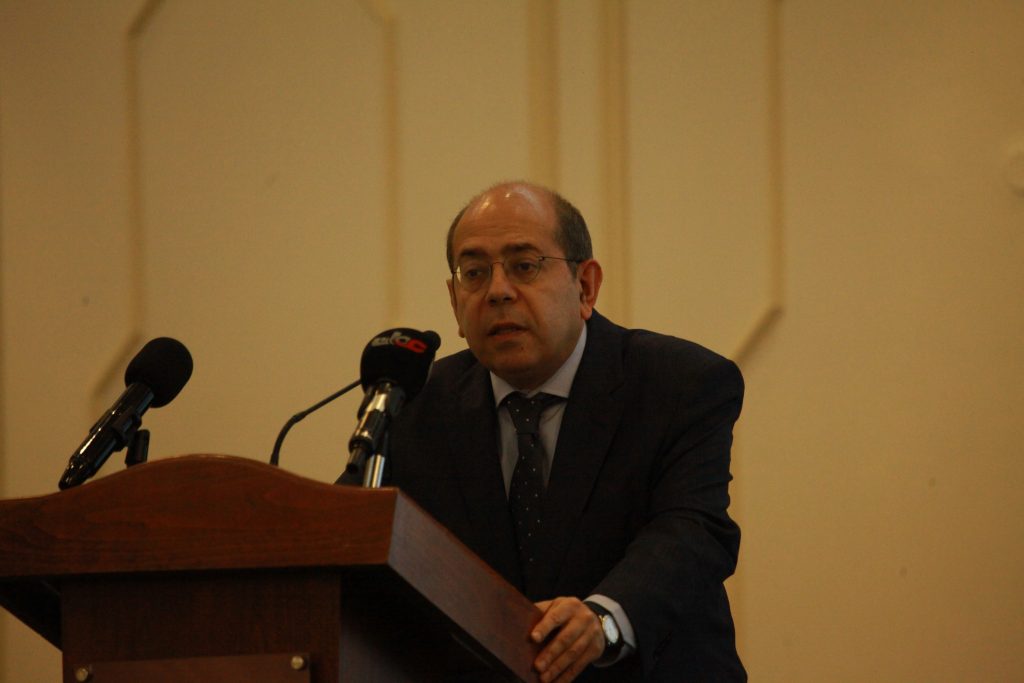
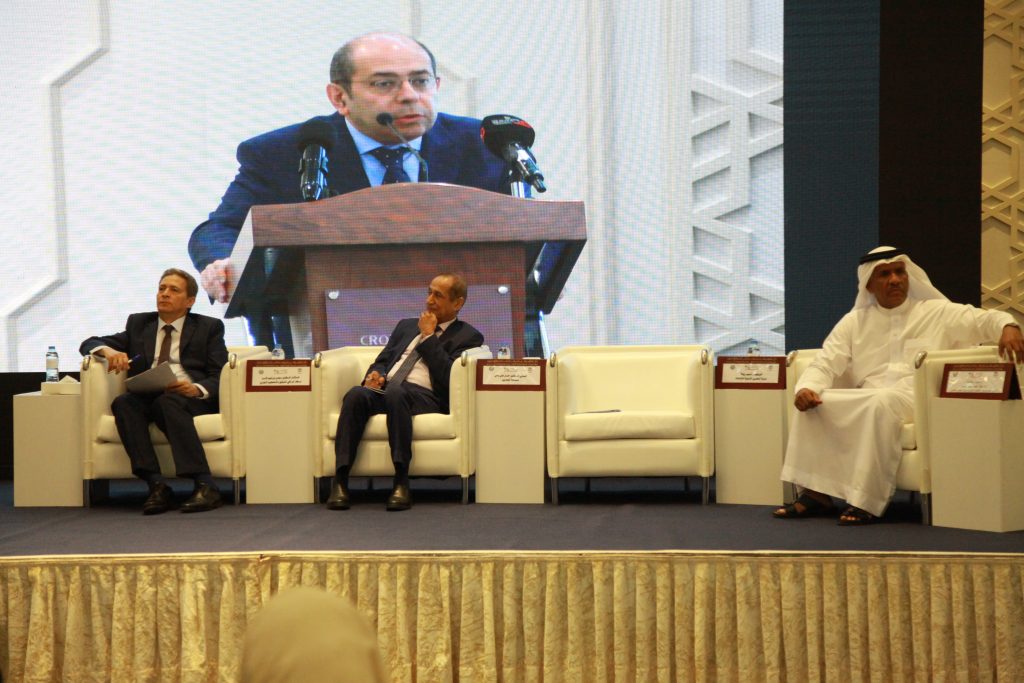
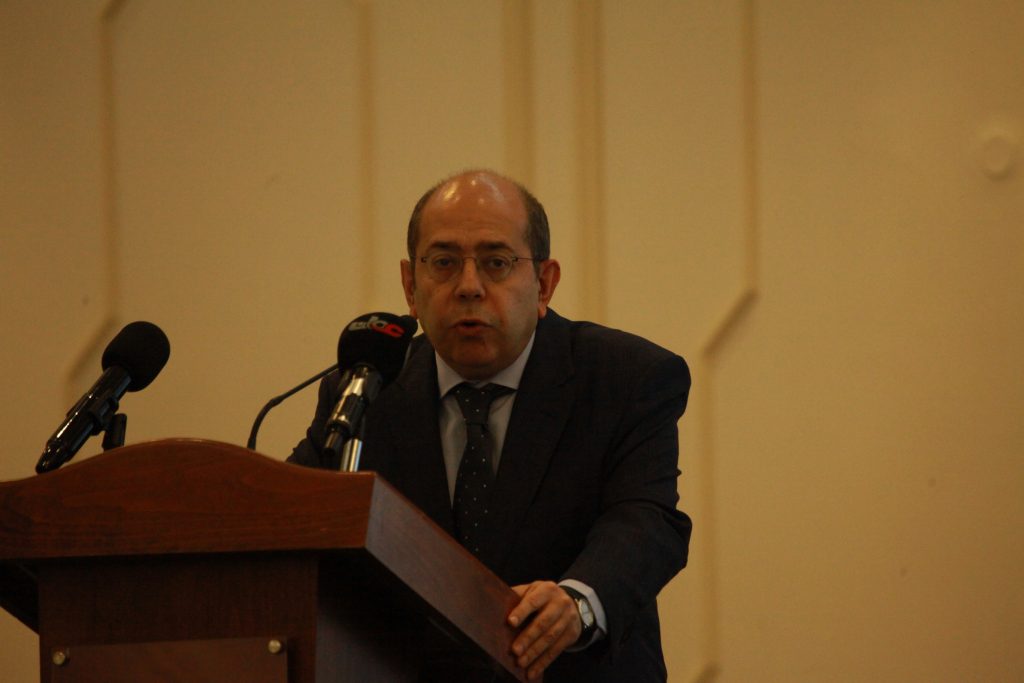
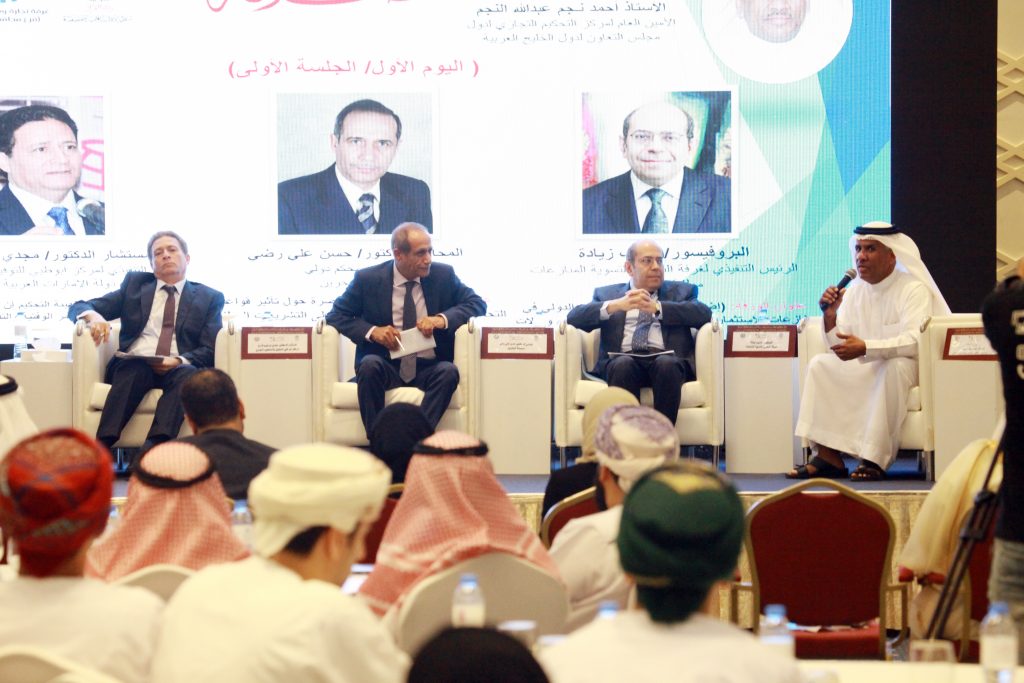
Professor Nassib G. Ziadé and Mr. Ahmed Husain, respectively chief executive officer and chief operating officer of the Bahrain Chamber for Dispute Resolution, took part in a two-day conference on foreign investment arbitration in GCC countries organized by the GCC Commercial Arbitration Centre (GCCCAC) in cooperation with the Oman Chamber of Commerce and Industry (Dhofar Governorate Branch) on 21 and 22 August 2019.
This 24th annual conference of GCCCAC, which was held at the Crowne Plaza Hotel in Salalah in the Sultanate of Oman, brought together a wide range of speakers to share their research, views, and practical experience of arbitration in GCC countries. The conference was structured around five main panels:
- Panel 1: arbitration in the foreign investment laws of GCC countries;
- Panel 2: arbitration in investment promotion and protection agreements between governments of GCC countries and other governments;
- Panel 3: the Agreement for the Promotion, Protection and Guarantee of Investments among the Member States of the Organisation of the Islamic Conference and its role in resolving investment disputes between GCC investors and host States;
- Panel 4: the settlement of disputes between a host State and a foreign investor from another State party to the 1965 Washington Convention; and
- Panel 5: the settlement of investment disputes in Arab countries.
Professor Ziadé gave a speech entitled Highlighting the Challenges of International Arbitration in Investment Disputes: Yesterday's Beginnings, Today's Paths, and Future Directions. He began by describing the international law concepts used by States to resolve investment-related disputes before the emergence of arbitration. They included diplomatic protection in the eighteenth, nineteenth, and early twentieth centuries. He also outlined the various competing theories on the responsibilities of host States in their dealings with foreign investors, such as the international minimum standard of treatment and the equality of treatment standard. Professor Ziadé then spoke of the origins and development of arbitration between foreign investors and States, briefly tracing its history from the adoption of the 1965 Convention on the Settlement of Investment Disputes Between States and Nationals of Other States, which established the International Centre for Settlement of Investment Disputes (ICSID), to the current deliberations of Working Group III of the United Nations Commission on International Trade Law (UNCITRAL) on investor-State dispute settlement reform.
Professor Ziadé also discussed the principal problems and shortcomings of the current investor-State arbitration system, such as conflicts of interest in all its forms, the lack of diversity and equitable representation in tribunal appointments, increasingly long and costly arbitral proceedings, and inconsistent interpretations of the same substantive standards. However, he cautioned against abolishing the current investment arbitration system and replacing it with a permanent investment court, as this was likely to have an adverse impact on investment. Professor Ziadé concluded that any reform of the current arbitration system should address the roots of the current problems rather than focus on their symptoms.
Click here to read Professor Ziadé's speech in Arabic.
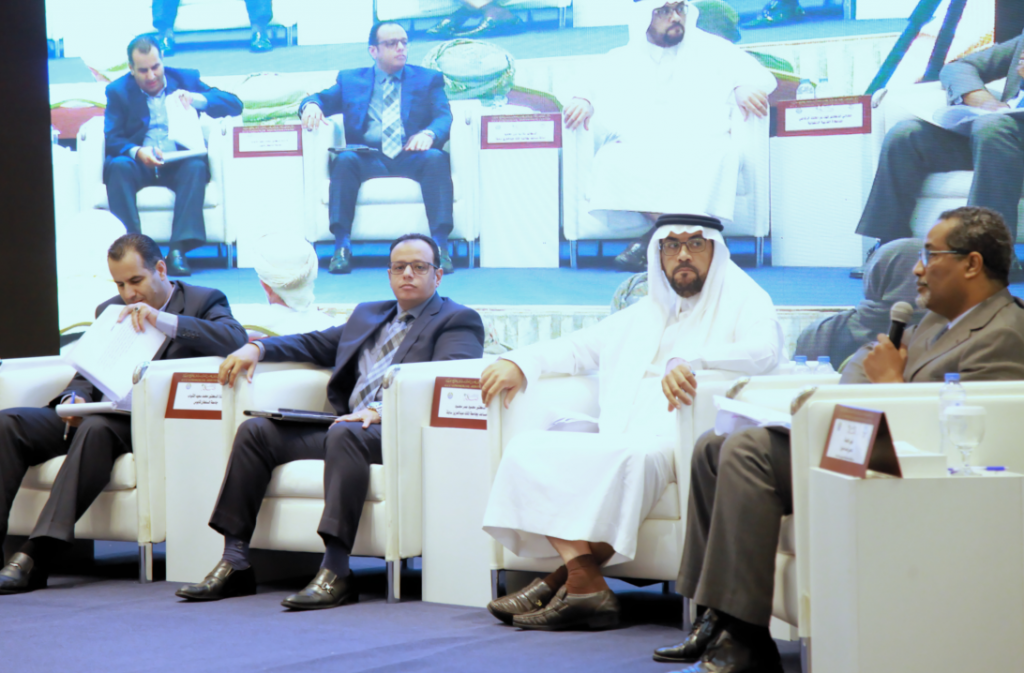
Mr. Ahmed Hussain moderated the conference's closing panel, which began by looking at how today's investor-State dispute settlement system falls short of the original expectations of the 1965 Washington Convention. The panel then considered some of the investment cases brought by foreign investors against Arab countries, before ending with a discussion of the investment arbitration in the Sultanate of Oman. The speakers on this panel were Dr. Fahad Mohammed Al-Rifai, CEO of Dr. Fahad Al-Rifai International Arbitration Law Firm in Saudi Arabia; Dr. Mahmoud Omar Mahmoud, professor of comparative law and former legal advisor to King Abdulaziz University; and Dr. Mohammed Saeed Abdullah Al-Shayab, head of the private law department and professor of commercial law at the Sultan Qaboos University Faculty of Law in the Sultanate of Oman.


